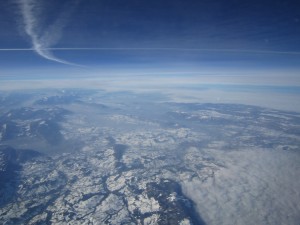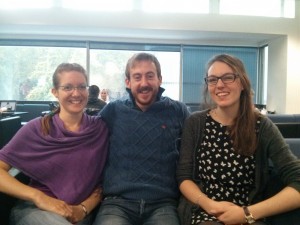ClimateSnack is a new initiative for early-career climate scientists around the world to improve their writing and communication skills. Snackers get to write tasty climate blogs and discuss them in a friendly and interactive environment. Marion talked to three members of the Imperial College London group for the latest issue of GeoQ!
 Good written and oral communication skills are quickly becoming a pre-requisite for early career scientists. Writing, presenting, interacting and collaborating are important for making contacts, developing research proposals, applying for fellowships and communicating one’s work. This is particularly true in a very publicised field such as climate change research, where inter-disciplinarity reigns, and the ability to convey ideas to wide ranging audiences is crucial.
Good written and oral communication skills are quickly becoming a pre-requisite for early career scientists. Writing, presenting, interacting and collaborating are important for making contacts, developing research proposals, applying for fellowships and communicating one’s work. This is particularly true in a very publicised field such as climate change research, where inter-disciplinarity reigns, and the ability to convey ideas to wide ranging audiences is crucial.
But gaining these skills is not always straightforward. Writing and publishing online can be daunting, so can interacting with researchers outside of one’s field.
Born in January 2013 at the University of Bergen, ClimateSnack brings together postdoctoral and PhD scientists across climate change disciplines, and helps them improve the way they communicate their work in a friendly, interactive environment. In July, Imperial College London became the second institution to join what has now become a global network of hungry climate snackers.
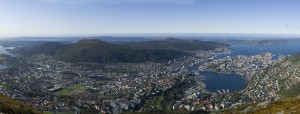
Panorama of Bergen – Source: Sindre, Wikimedia Commons.
I joined ClimateSnack back in August and have really enjoyed chatting about climate change research with so many PhD and postdoctoral students across the college departments and climate disciplines. When thinking of what to write for the Young Scientists section of the GeoQ issue on climate change, I decided that it would be great to discuss this initiative that has taught me very much about communicating climate change research. So I interviewed three core members of the London snacking team and asked them to tell me more about what ClimateSnack is all about. Here is what came out of our interview!
“ClimateSnack is essentially designed to help early-career researchers develop their writing skills and their communication skills in general”, says Dr Will Ball, a postdoctoral researcher in the department of Physics and the founder of the ClimateSnack group at Imperial College London.
“At each institute that we have set up a ClimateSnack group, we physically bring together people in different areas of climate research. They will write thousand-word blogs about their work, keeping it very simple. In fact you want to keep it at the level that any other climate scientist in a different area of climate research would be able to understand. So as a solar physicist, I should be able to communicate my work to somebody working on, say, atmospheric dust”.
These blog pieces are the climate “snacks” that eventually get published online:
“Then we have a centralised hub that all the institutes publish through, which is the website”, Will continues. “Through that, people will be able to interact, get to know each other and give feedback on the actual writing. So they get better at writing, and also learn about the science that’s going on around them. That’s the concept”.
Sian Williams, a PhD student in atmospheric physics looking at dust plumes and land-atmosphere interactions, runs the day-to-day climate snacking affairs in London:
“We have a meeting once a month where people from different departments across Imperial College come together”.
“Every time, we have a few snacks. I try to encourage people to write them and then send them out to anyone who is coming to the meeting in advance, so that people get a chance to read what has been written and give feedback”.
Writing a snack can be a daunting but rewarding experience. Each author reads out his or her piece and the floor is then open to discussion. I remember that reading my own piece out loud was really quite scary! But it helped very much with improving the post, because one instantly picks up on sentences or expressions that don’t quite fit or contain too much jargon.
“People who have come together from different institutions say what they like about the articles, how they think they can be improved. Normally when you write something, be it for a journal or a website, you never really get that direct feedback, so I think it’s a really great opportunity”, Sian continues.
Dr Rachel White, a postdoctoral researcher in regional climate modelling, has recently published her very first snack, writing about the difficulties of simulating global rainfall patterns: “I actually found that it was easier to write than I thought it would be”.

Detail of the portrait of a young woman with writing pen and wax tablets, Museo Archeologico Nazionale di Napoli – Source: Wikimedia Commons.
But putting pen to paper is just the first step: “Trying to check that you have really written what you wanted to write, and that people are going to understand what you meant, is the really interesting process”, Rachel adds. “That’s where the ClimateSnack meetings come in. Different people will have got different things from your article. You have to be quite careful so that everybody understands what you meant. That is a really interesting concept to learn and try and get you head around”.
Will is now an experienced snacker: “Publishing online was nerve-racking, but I developed a better sense of confidence in what I’m doing and in my writing”.
These meetings are not just useful for improving one’s writing, but also for placing early-career researchers in a safe, productive environment where they can hone their discussion and personal engagement skills.
“It’s not just writing. At these meetings you have to communicate, debate, argue, discuss, and you get better at that. And it’s in a safe environment. That’s where you build the confidence and then start moving out”, Will explains.
“Important, imaginative work comes out of collaborating with people who aren’t in your field”, Rachel adds. “Being able to discuss your research and describe it clearly to someone who is in a different field is incredibly important, at conferences, over the internet, everywhere.”
For Will, these communication skills are valuable even within one’s own field: “How many abstracts, how many summary papers have you read that are difficult to understand, even in your own field? [ClimateSnack] makes you more aware of the phrases and the words you use. I’ve noticed that in the way I write. I’m just a little bit more aware of what might confuse somebody.”
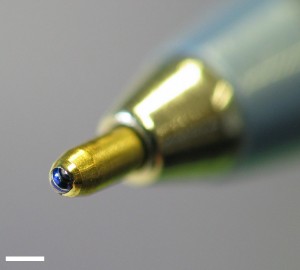
Source: Daniel Schwen, Wikimedia Commons.
ClimateSnack has grown at an incredible pace since January. “We are setting up at many other institutes in the UK, and have interest from several others in Europe and in the United States”, Will tells me. “So it’s going to expand very quickly in the next coming months”.
The success and uniqueness of ClimateSnack lies, I think, in its open and constructive environment, and in the opportunities it creates for early-career researchers to forge international collaborations with other climate scientists.
Concluding our interview, Sian adds: “There are opportunities for climate snackers to go on residential courses across Europe, which is really exciting because it’s not only building skills but again building collaborations with different people. And I think the main exciting thing is more people from different universities getting involved”.
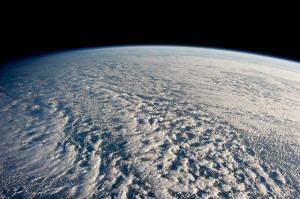
Source: ISS Expedition 34 crew, Wikimedia Commons.
I have certainly loved being part of this exciting group and have learned so much about other branches of climate research. It has been fantastic to meet so many climate scientists from different departments and universities and I look forward to hearing about upcoming snacks at the next meeting!
Marion

